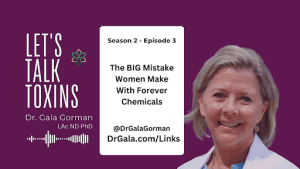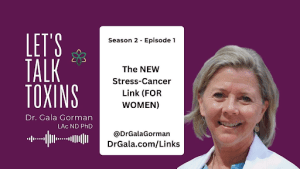Before you resort to taking medication for insomnia, keep this in mind: while drugs may provide immediate relief, they come with risks and side effects.
It’s crucial to pinpoint underlying sleep disorders first and prioritize good sleep hygiene. Think about lifestyle adjustments before using even natural supplements.
Making knowledgeable health choices … especially regarding sleep aids … can directly influence your overall well-being. I’m glad you’re here to learn more about the intricate world of sleep medications.
Dr. Gala’s Quick Take
Yes, insomnia medications may offer quick relief, but they have risks like drug dependency and side effects. So first, it’s important to identify any underlying sleep disorders and focus on good sleep hygiene before taking any medication for insomnia.
Types of Sleep Medication
You might be curious about the various types of sleep medication and options. There are three main categories: prescription sleep aids, over-the-counter medications, and natural sleep supplements.
Each kind has its own advantages and disadvantages, which we’ll discuss in detail to help you make a wise choice.
Prescription Sleep Aids
Often, when you’re struggling with sleep issues, prescription aids like Suvorexant, Ramelteon, or Mirtazapine may appear as a quick solution, but it’s vital to understand the effects and potential dangers linked to these medications.
Prescription drugs like benzodiazepines and non-benzodiazepine drugs might provide relief, but they can lead to dependency and may result in complications if misused.
Drugs like Rozerem, which stimulate your brain’s melatonin receptor, can help reestablish a normal sleep cycle. However, it’s crucial to identify any underlying sleep disorders and prioritize good sleep hygiene before turning to these sleep aids.

Once your brain and body become dependent on any substance to initiate a process that should happen naturally it becomes increasingly difficult to correct the real cause of the problem.
Over-the-Counter Medications
Over-the-counter sleep medications can be even more damaging. When you’re trying to understand the differences and uses of melatonin, valerian, and antihistamines like diphenhydramine and doxylamine, these OTC choices are often thought of as the first line of defense against acute or situational insomnia.
Benadryl, for instance, may be recommended because of its antihistamine substance, a relaxant. Unisom and Sominex are also common choices. They both contain diphenhydramine, another antihistamine that triggers sleep. And Nytol is another popular option that also uses diphenhydramine, a sleeping-aid substance.
However, it’s important to remember these sleep aids aren’t meant for long-term use. They can become habit-forming and may cause problems if misused.
Natural Sleep Supplements
You have probably considered natural sleep supplements as a potential solution for your sleep troubles. Melatonin, valerian, and other herbal options can be powerful friends in your search for restful nights.
Melatonin, a hormone, plays a crucial role in managing your sleep-wake cycle. It’s like your body’s natural sleep guide, directing your slumber. Valerian, on the other hand, is a plant-based alternative known for its soothing effects.
These natural sleep supplements offer a non-prescription alternative for handling sleep issues, providing you with more control over your sleep health. Remember, sleep is a process your body should handle naturally. You need to get to the root cause of the disturbance.
What to Know About Prescription Sleep Medications

When considering prescription sleep medications, you’ll encounter a broad range, from drugs like suvorexant, ramelteon, mirtazepine, zolpidem, and eszopiclone, to antidepressants with calming effects, which are also used for treating insomnia. Each drug has its own distinct profile and pathway it affects, and that creates potential side effects. So it’s crucial to discuss these with your doctor before introducing the additional chemical toxicity in prescription medication.
Like a key unlocking a door, these medications operate by interacting with specific receptors in your brain to promote sleep. However, they’re not a foolproof solution. You might experience side effects varying from daytime sleepiness to more intricate issues like sleepwalking or memory challenges.
These medications shouldn’t be your primary approach to dealing with insomnia. Cognitive Behavioral Therapy (CBT), a non-drug treatment, has proven to be equally effective for many individuals, without the risk of dependency. It involves adjusting sleep habits, reshaping misconceptions about sleep and insomnia, and establishing healthier sleep surroundings.
Ultimately, your aim is to regain command over your sleep, not to become dependent on a pill.
What to Know About Over-the-Counter Sleep Medications

If you’re dealing with occasional sleeplessness, over-the-counter sleep aids might seem like an easy solution, but it’s crucial to understand what you’re introducing into your body and the possible consequences. OTC sleep aids, like antihistamines, can provide temporary relief for situational insomnia, such as jetlag or night shift work. However, they’re not created for long-term sleep problems.
While these aids can be beneficial, they should be used carefully. You shouldn’t combine them with alcohol or other sedatives, and it’s important to ensure you can dedicate a full eight hours to sleep after taking one. If your sleep troubles continue, it’s vital to seek professional help.
It’s best to think about other, potentially safer alternatives. Good sleep hygiene habits and lifestyle changes can often offer relief. Remember, self-medication without professional guidance can lead to complications. You have the power to make educated decisions about your health.
Side Effects of Sleep Medication With a Sedating Effect

When exploring the world of insomnia medications with a sedating effect, it’s important for you to be mindful of possible side effects, including dizziness, lightheadedness, headaches, prolonged drowsiness, dry mouth, and nausea. These side effects can interrupt your daily routine, making you less productive and possibly slowing down your progress towards your goals including overall well-being.
Prolonged drowsiness, for example, could affect your alertness and cognitive functions the next day. Regular headaches may obstruct your ability to focus, while dizziness and lightheadedness could increase risks of falls and accidents.
Dry mouth and nausea are other common discomforts you might have to endure, potentially impacting your appetite and hydration levels. So, before you start using sleep medications with a sedating effect, think about these side effects carefully.
Sleeping Pills: What’s right for you?

After learning about the potential side effects of sedating sleep medications, you’re likely curious about which sleeping pill or insomnia remedy might be the best match for you. Keep in mind that prescription sleeping pills each have their unique risks.
Suvorexant, ramelteon, mirtazapine, zolpidem, and eszopiclone are among the many choices available. Each operates differently, with some causing sleepiness and others stimulating your brain’s melatonin receptors. Over-the-counter antihistamines and certain antidepressants like mirtazapine are also commonly used for sleep disturbances but will likely lead to weight gain.
The risks of sleeping pills can vary from daytime drowsiness to cognitive difficulties, and some can lead to dependency. If you do choose to use medication, it’s vital to adhere to guidelines for safe use. Restricting usage to 1-2 times a week, steering clear of alcohol, and regular check-ups with healthcare providers can lessen these risks.
While sleeping pills can offer relief, they’re not a one-size-fits-all remedy, and they shouldn’t be your initial strategy against sleep problems. Instead, view them as part of a wider plan, including lifestyle changes and addressing the underlying root cause of health issues. This approach will enable you to take ownership of your sleep health.
Key Takeaways
- Get to know the risks and benefits of prescription sleep aids like Suvorexant, Ramelteon, and Mirtazapine, including possible dependency.
- Over-the-counter sleep aids like Benadryl, Unisom, Sominex, and Nytol are helpful for sudden insomnia but can become habit-forming if misused.
- Natural sleep supplements serve as a non-prescription alternative for managing sleep issues, but proper usage is crucial.
- Keep in mind the potential side effects of sleep medication such as dizziness, headaches, prolonged drowsiness, dry mouth, and nausea.
- Prescription and OTC sleep medications should be part of a wider sleep health strategy involving lifestyle changes and addressing the underlying root cause of health issues.
Conclusion
Before deciding to open that pill bottle, keep in mind, sleep aids can put you on a slippery slope. They might provide short-term relief, but they’re not a long-term solution.
You could be struggling with a sleep disorder that requires medical care. Additionally, the potential for dependency and side effects is genuine. So, think about adopting healthier habits or turning to safer alternatives.
Remember, your well-being is your most valuable asset, and managing insomnia isn’t just about falling asleep … it’s about experiencing reliable, good, restful sleep.
“If you came into my office, I’d ask you a lot of questions that would help us connect the dots … so that together we can deal with your toxic stress.
Every situation is unique and you need a plan that works for you. Not a one-size-fits-all solution.
If you’re thinking you can’t come into my office, don’t worry. I’ve created a program with all of my initial recommendations to help you unravel the mystery. You can use it at home and at your convenience.
So if you’re thinking that managing chronic stress just isn’t possible … or even the answer … for you, I want to show you what you may be missing.
And how you can identify the toxic stressors that are creating your symptoms with my Human Energy System Reboot. You can get started HERE.” – Dr. Gala













